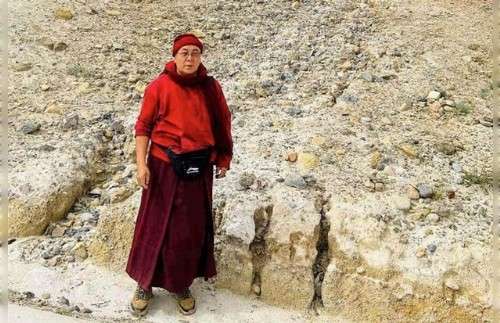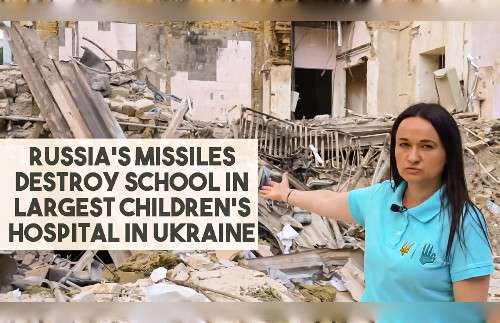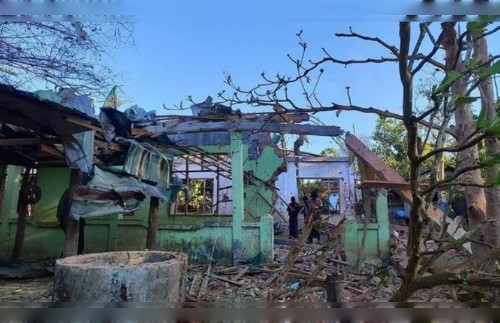
Migrant workers employed on a construction project for a FIFA World Cup stadium in Qatar worked for up to seven months without pay, Amnesty International has revealed. Around 100 employees of Qatar Meta Coats (QMC), a design and construction company subcontracted for façade works on the €770m Al Bayt Stadium, are still waiting to be paid their full dues.
This week, after Amnesty International raised the case with the Qatari authorities, FIFA, and the Supreme Committee for Delivery and Legacy, Qatar’s World Cup organizing body, some employees began to receive part of what they are owed, but still have outstanding unpaid salaries.
This week, after Amnesty International raised the case with the Qatari authorities, FIFA, and the Supreme Committee for Delivery and Legacy, Qatar’s World Cup organizing body, some employees began to receive part of what they are owed, but still have outstanding unpaid salaries.
“Migrant workers told us about the hardship they endured having worked without pay on Al Bayt Stadium for months on end. They are worried about their families, who rely on the money they send home from Qatar to pay school fees and medical bills,” said Steve Cockburn, Head of Economic and Social Justice at Amnesty International.
“This case is the latest damning illustration of how easy it still is to exploit workers in Qatar, even when they are building one of the crown jewels of the World Cup. For years we have been urging Qatar to reform the system but clearly change has not come fast enough.
“Although recent payments will provide some welcome relief for workers, Qatar’s World Cup organizers told us they had known about the salary delays since July 2019. This raises the question of why Qatar allowed workers to continue working for months without pay. It shouldn’t take an Amnesty investigation for workers to be paid what they are owed.”
In a briefing Amnesty International also documents how QMC has failed to renew employees’ residence permits, putting them at risk of detention and deportation. Most are currently waiting out the COVID-19 lockdown in cramped accommodation in Doha, where QMC is still providing their meals.
Amnesty International continues to stand with all QMC workers to demand Qatar and its World Cup partners pay them every penny they are owed. They should also ensure they have valid legal documents and are reimbursed any fees they paid to secure their jobs in QMC. All these actors need to act swiftly to stop abuse when it is uncovered and provide remedy quickly.
Empty Promises
Amnesty International interviewed current and former employees of QMC and reviewed court records and contracts. The workers said salary delays had affected all employees working on Al Bayt, estimating this to be around 100 migrant workers from Ghana, Kenya, Nepal and the Philippines, among others.
Delays began in early 2019 and the situation further deteriorated into 2020. Many employees received no salary at all for their work between September 2019 and the end of March 2020, though some salaries stopped as early as August. QMC repeatedly assured workers their money was coming but never fully delivered on their promises.
Struggle for justice
In January 2020, fed up with the company’s repeated promises, some workers submitted complaints to Qatar’s Labour tribunals. During mediation sessions QMC representatives agreed to settle some claims but didn’t follow through. Other employees were told by the company they would be paid only if they agreed to end their contracts early and go home.
Several employees said they were stopped from coming to work, apparently in retaliation for going to the courts or for refusing to end their contracts early.
One worker, Kiran* (name changed to protect his identity) said: “The company has so much advantage over workers that you regret going to the court. Whatever the company decides to do Qatar favours them. Workers are suffering because the companies rule.”
By the end of February 2020 QMC had pulled all remaining employees off the stadium and asked them to report to its factory, which manufactures and finishes materials including aluminium and steel, apparently for use in Al Bayt Stadium. They continued to work there without pay until 22 March, when it closed due to the pandemic.
After Amnesty International exchanged detailed correspondence with the Supreme Committee and other key actors who have known of the persistent abuse for nearly a year, the Supreme Committee informed Amnesty that workers would start to be paid imminently. Indeed, on 7 June, workers confirmed to Amnesty that some of them had received part of what they are owed. However, workers confirmed that not everyone had received a payment, while even those that did have not been paid the full amounts.
Denied documentation
The workers’ situation is made worse by the fact that most now have expired residence permits because QMC has failed for months to renew them.
Under Qatar’s kafala system, migrant workers rely on their employers for almost every aspect of their legal presence in the country. Employers have a responsibility to provide them with valid residence permits, without which migrants cannot work legally in the country, will accumulate fines and could be detained or deported. They also cannot change jobs without their employers’ permission.
Recruitment fees
Like so many migrant workers who come to the Gulf, QMC workers paid large fees to get a job in Qatar, which is prohibited by Qatar’s Labour Law.
Those interviewed by researchers said they paid amounts ranging from $900 to $2,000 USD to recruitment agents in their home countries. Many had to take out loans to cover these fees and now find themselves struggling to provide for their families.
Kiran said he could not go home yet or pay his younger siblings’ school fees because he had incurred large debts coming to work for QMC in Qatar.
“The future was not looking good for me before I came to Qatar… I was unemployed and couldn’t find a job in my home country…. I am the only person taking care of my parents and siblings and I thought coming to Qatar would make things better for all of us…. But sadly, things didn’t work out as I expected.”
Responses to allegations
In written responses to Amnesty International, QMC acknowledged the payment delays due to financial difficulties and said it was trying to resolve them.
The Supreme Committee told Amnesty that it first learned of QMC’s payment problems in July 2019 during audit interviews with workers, and had since taken various measures to try to remedy the abuse, including meeting the company’s management, blacklisting it from future contracts and informing the Ministry of Labour.

FIFA said that it contacted the Supreme Committee once it became aware of the case following Amnesty’s investigation, and is now working with its partners in Qatar to ensure that all outstanding salaries are paid without further delay. However, it remains unclear why FIFA was unaware of abuses at Al Bayt Stadium until May 2020.
Amnesty International also wrote to the Ministry of Labour but has not received any reply to date.
FIFA must step up
The Supreme Committee’s Workers’ Welfare standards, which require companies on World Cup projects to ensure the rights of all workers are respected and abuses remedied, appear to have enabled the Supreme Committee to detect the problems at QMC quickly. However, they were unable to secure timely payment for QMC workers, indicating these standards are still inadequate to stop abuses and provide timely remedies when companies can’t pay or won’t comply.
Meanwhile, the fact that FIFA has been unaware of the plight of workers at one of its World Cup stadiums for so long shows it is still failing to take human rights abuses linked to the Qatar 2022 World Cup seriously enough.
“If, over the past 10 years, FIFA had held its World Cup partners to account, and used its clout to push Qatar to fully reform its systems, we wouldn’t be hearing the same tales of workers’ suffering with only two and half years until kick-off,” said Steve Cockburn.
Copyright © 2020 AMNESTY INTERNATIONAL
Escaping from Scam Center on Cambodia’s Bokor Mountain
UN Security Council Meets to Discuss Children and Armed Conflict
10 Shocking Revelations from Bangladesh Commission’s Report About Ex-PM Hasina-Linked Forced Disappearances
Migration Dynamics Shifting Due to New US Administration New Regional Laws
UN Security Council Meets to Discuss the Maintenance of International Peace and Security and Artificial Intelligence
Winter Brings New Challenges for Residents living in Ukraine’s Donetsk Region
Permanent Representative of Israel Briefs Press at UN Headquarters
Hospitals Overwhelmed in Vanuatu as Death and Damage Toll Mounts from Quake
Subscribe Our You Tube Channel
Fighting Fake News
Fighting Lies


















